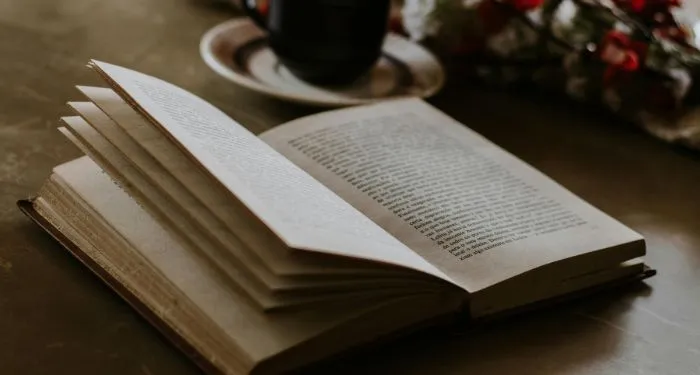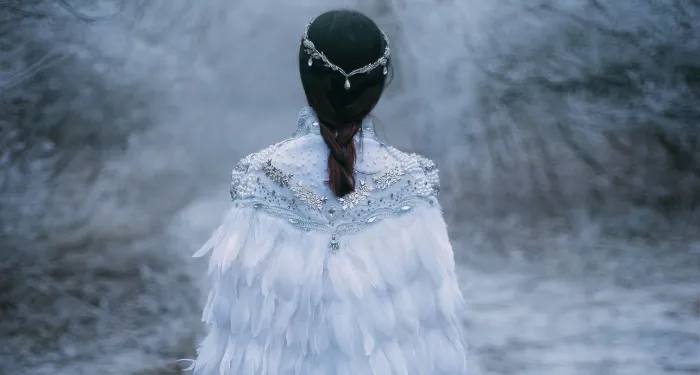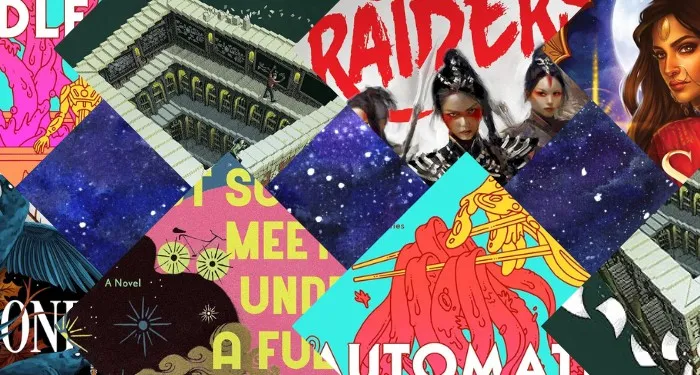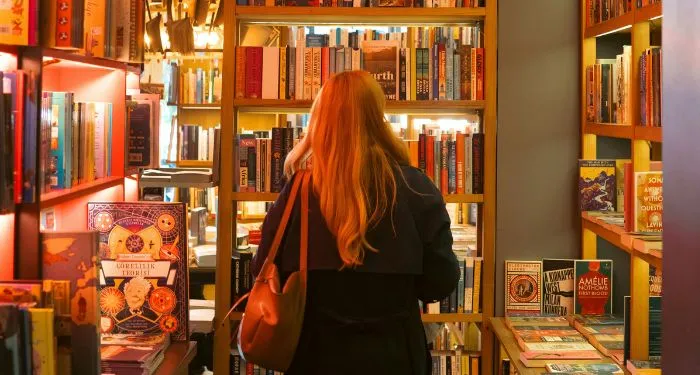Translation demands a deep and scholarly knowledge of language, which never feels sufficient. Translators are often faced with the decision between making themselves invisible or asserting their styles. Many of them are caught between identities. Maureen Freely, an American who grew up in Istanbul, had a vexed relationship with the work of Orhan Pamuk while Tiffany Tsao, American-born but of Indonesian heritage, felt shame when translating short stories by Budi Darma. All of the translators in this conversation, for reasons of temperament and structure, seem to have a masochistic relationship to their work. But as in masochism, the pain is a kind of pleasure, too.
In the third episode of my conversations with translators at Lake Como, the translators confront the fraught emotional condition of their work: the sense that not only is translating shameful and grotesque but that they are, too, for daring to attempt it.
Merve Emre: I want to start by reading the first few lines of “Translation Is a Monster,” a poem that Daisy published in The Paris Review last year in a series of five poems on mixed metaphors for translation:
Dr. Frankenstein wanted to create a human.
Instead of going about it the usual way,
he wanted to create a human out of parts of other humans.
Dr. Frankenstein in this metaphor is the translator
He is like an icky version of the quilt maker
But in this case the original text is simply
generic.
He wanted to make a human, i.e.,
to create a life through his own ingenuity and resources
without recourse to a womb.
It occurred to me, as, of course, it must have occurred to you, Daisy, that there is danger in creating a human out of parts of other humans. Tell us why you chose the metaphor of translation as a monstrous, life-giving act.
Daisy Rockwell: A lot of translation is the middle part that nobody sees or hears or thinks about. If you’re not a translator, you believe that somebody finds a text and thinks, “Let’s put this into another language.” Eventually, a book shows up, and there it is. But for a translator, the important part is the middle, which takes a long time and can be very painful. There’s a lot of time when you think, “This is a disaster, this is a hideous thing. This is never going to be successful. I can’t make all of these things fit together.” Translation is reconstructing a text in a different language that has different parts. We have to use literary references. We have to use language play. We have to use all the things that exist in another language.
The reason I thought of Frankenstein was because there’s the part where he animates the monster, and it jumps, and there’s life in it, and it gets up and starts lurching around. That’s very exciting. You think, “Okay, this might work!” But it’s still awful. Everybody screams when they see it. I think that is what’s happening before you see that lovely final product. We try to make a translation not so horrifying that the villagers scream and run away, but instead think, “Oh, this is nice!”
Maureen Freely: I love the middle. It’s the time that I’m happiest. Because Turkish is so far away from English, each sentence I translate brings up the question of Frankenstein’s monster. But I love being in that space of translation, because I don’t feel like a foreigner there. I will be a foreigner as soon as I’m finished, and I get hit with all of the politics of translation. I think it’s partly because my formation is as a novelist, so I like going into somebody else’s space and living there. I probably should feel bad about it, but I don’t.
Tiffany Tsao: The monster is one of my favorite characters in literature because, actually, he’s really cool. He reads Petrarch and Milton. He’s amazing. People should just give the monster a chance.
I’m a bit like you, Daisy. I don’t like the messy part. I like the end, after I’ve refined and combed over the translation. I’ll think, Wow, this is amazing. Look! It’s like a baby. It’s got legs. I previously have likened translation to gestation, which is the more natural equivalent to Frankenstein’s monster. It’s such a stereotypical man thing to do. “Oh, you know, the womb is so complicated. Let’s just dig up parts from the graveyard and sew it together and electrocute it. It’s just too messy to have a womb.” I feel the process of translation as incubation. I spend so much time thinking about phrases again and again, thinking about how to render them, that I feel like there’s an embryo growing inside me until it’s birthed out.
Emre: Maureen, you said that when you inhabit that middle space, you feel safe. You don’t feel like a foreigner. Tell us about being a foreigner and what the politics of translation are as you’ve experienced them, in your translations of either dead Turkish authors or living ones, like Orhan Pamuk.
Freely: It goes back, for all of us, to how we came to translation and what we bring into it. Having grown up in Turkey, it will always be my home. It will always be the place I love most. But it is a very nationalist country. I had to learn Turkish by stealth. I learned Greek and French before I learned Turkish. My position in the country I love most was always of an outsider, sometimes welcome, sometimes not welcome. I took all that to my translations.
One of the things I discovered when I started translating Orhan was the number of experiences I’d never had. I’d never been invited to a büryan meal or visit. I’d never been invited into the private spaces of my friends’ homes. Especially when I was translating the first books by Orhan, I felt like I maybe shouldn’t be there, but I was really glad that I was invited in.
This illusion quickly faded once I’d passed the finished draft. The arrangement I had with Orhan was to go through my translations line by line, page by page, together. We had colossal arguments for seven years. It was an education.
Rockwell: I came to translation as an academic. I was translating dead authors who had written modern classics. I always had this fantasy of what it would be like if my author were living, how much they would help me. There are words that simply aren’t in dictionaries, that nobody else knows, that are a quirk of the author, a particular way that the author sees things. Then I finally got a living author.
Emre: You mean Geetanjali Shree.
Rockwell: Yes, and I realized that even a living author can be no help at all and sometimes even a hindrance. I don’t mean that as a slight. I’m an artist. I’m a painter. If somebody asks me, “Why did you make this pink? Why is he standing over there?” I have no answer at all. I say, “I don’t know. Because I felt like it.” There were some very difficult passages in Geetanjali’s novel Tomb of Sand. I would sometimes ask her to throw me a bone. “What were you thinking here?” I would ask. She would say something like, “Well, I had just been to Iceland, and I was so struck by the landscape and the volcanoes and the rocks.” Okay, thanks. Like Orhan, she would go through my whole translation, and would overwrite large sections for no reason. Sometimes there was a kernel of something I had really misunderstood, and I had to go back and find the kernel and then do a document comparison. I had to establish my own voice, or our joined voice, as I had written it the first time.
Tsao: I want to talk about the role of shame in being a translator. As you said, Daisy, I know when there’s something I’m not getting, or there’s something I think I’m missing, and then I have to hunt it down. I’m often too ashamed to ask questions. I feel like as a good translator, you should be able to figure things out yourself. I’ve worked only with living authors, except for one, Budi Darma, the author of People from Bloomington, who sadly passed away recently.
When Budi was alive, we had a very indirect, very polite e-mail exchange. In his author’s preface, he had written, “I have resisted, in this novel, flying to another world.” I had translated it as the reverse: “I have kept my feet on the ground for this novel.” He said, “Why did you translate it that way?” I thought this was a hint. I typed the phrase into Google, and I realized it was a reference to Tristram Shandy. In his e-mail, he had mentioned how he’d been reading a lot of novels at the time he wrote People from Bloomington, including Tristram Shandy. I thought this was a hint, that he was telling me to look at Tristram Shandy. I found a similar phrase in the novel and I wrote to him, “Oh, thank you for the hint. I found it.” He wrote back, “Found what?” “The allusion to Tristram Shandy that you made,” I wrote. He wrote back, “I didn’t make an allusion to Tristram Shandy. I wasn’t hinting anything.” Then I showed it to him, and he said, “Oh, maybe I did,” and I said, “We’ll put it in, because it’s too coincidental.” But I felt so ashamed I hadn’t read Tristram Shandy, and, therefore, that I was not a sufficient translator for this novel.
Emre: Maureen, you were shaking your head aggressively.
Freely: Well, the key to my long working friendship with Orhan is that we’re almost exactly the same age. He’s only six weeks older than me, we went to the same schools—and I did better at them.
Emre: I’m sure he loved when you reminded him of that.
Freely: Our discussions, which I learned a lot from, began with the first sentence of Snow, the first book I translated for and with him. To paraphrase it: “As Ka was looking out the window of the bus, he thought, if I wrote a poem about this, I would call it the silence of snow.” Orhan said, “The first time I read your first chapter, I thought this is how I’ve always wanted to sound in English. But then I compared it to the Turkish, and I found out what you did to my words.” He said, “It should be the silence of the snow.” And I said, “No, it should be ‘silence of snow.’”
Tsao: This is just the first line?
Freely: Yes. Finally, he gave in and said, Yes, Madame of English, I agree with you this time. We went on arguing sentence by sentence. Certain things were really important to him, like no sentence should begin with “and,” and no sentence should begin with “but.” There’s a reason for that in Turkish—it doesn’t quite matter in English—but I went along with that. He wanted his long sentences to remain long sentences. I learned an awful lot about what he was trying to do in a sentence.
On the other side of the equation, if you like, the first line of Istanbul in Turkish is a very long, very tricky sentence with a lot of complicating clauses in the middle. I worked on this with Orhan a lot, and we kept returning to it. One of the choices that I offered was, “When I was a child living in Istanbul, I began to suspect that I was not alone. There was another Orhan in another part of the city.” He said, “As a child, I had no understanding of alone. That didn’t exist in my family. We were always all together. There was no such thing as privacy.” In fact, there was no such word in the text. I had thought it to be implied. It was through our sentence-by-sentence discussions that I came to understand the very great cultural differences between my upbringing and his. We had grown up in the same city and were almost the same age but had belonged to very different worlds. So that’s why I, despite the arguments, had a lot to learn from him, shamefully.
Tsao: I know I sound masochistic right now, but what about pain? There is part of me that, when I have had these fruitful conversations with an author, finds them painful. The shame gets dragged up, and I think, “The only reason I’m having this argument over these words is that I don’t know enough.” But it’s fruitful pain, like going to the gym or being on a treadmill. No pain, no gain.
Emre: Daisy, could going to the gym be one of your mixed metaphors?
Rockwell: I’ve written twenty-two so far and that hasn’t been, but I could add it. The three of us have academic backgrounds, and I think that translation is the most rigorous form of analysis and scholarship that you could possibly exercise over a text. What I’m hearing from you two is that by going over these sentences again and again, you learn things about an author’s intent that perhaps he or she did not even know. Certainly, you can do that by simply reading, but it’s not the same as pulling apart the sentences and shredding them.
Freely: I am so glad you think I’m an academic.
Rockwell: Well, you’re at a university.
Freely: I’m in a university. I’ve calculated that I must have spent maybe four years of my life not in a university town or at a university. I’m obviously a university creature, but I’m not an academic. I’ve benefited in all sorts of ways by living and working in university communities, by being a bit of a magpie, especially as a translator. But there’s a lot of shame. I always have that sense that they know more than I do, until I have an argument with them. My relationship with Orhan went in a different direction when he started getting hate campaigned and being accused of selling his country out to get a Nobel Prize. He ended up taking some of that out on me. When we’d have an argument, he’d say, “You got this wrong, ask a pure Turk.” When our relationship fell apart, it was something I almost didn’t survive. It may explain why I translated dead authors for a long time after that.
Emre: Daisy, do these feelings of shame and a desire for purity affect you when you’re translating Geetanjali?
Rockwell: The shame is because I’m not a native speaker. There are some things that I simply can’t analyze into existence or find in a dictionary. I have a network of people that help me. But when it came to Geetanjali, nobody was able to help me because her writing is so idiosyncratic. People that were helpful to me before said, “You’re on your own, sorry.” Then, shamefully, I had to bring all my questions to her, and even she didn’t have an answer. But I think that the shame is what drives us to perfection. It’s just beyond belief, the lengths that we go to try to create or recreate a text.
Freely: I think that you’re writing the gym poem as we speak.
Tsao: My heritage is Chinese Indonesian. I grew up in a Chinese Indonesian family. I heard Indonesian spoken at home, spoke a little bit of it, lived in Indonesia for six years of my childhood, and it’s still not enough, even though I am more familiar with certain things than a completely non-Indonesian translator would be. There is shame about not being completely local, completely Indonesian, even though that is exactly what a translator is: a bridge. My ability to interact with and understand a book’s English readership is part of what I need to bring to the job. But the shame follows you everywhere. Being a translator sounds like a horrible profession when you think about it in these terms.
Emre: Masochism requires getting some pleasure from pain. I’m wondering if we could switch to pleasure. Daisy said that the feeling of always being an outsider, of never being close enough, pushes you toward a closeness with the text, a striving for perfection. What’s the nature of the pleasure on the other side of the masochistic equation?
Freely: The pleasure goes back to how we traveled into these languages. Growing up on the university campus, my classes were taught in English, but all the students were Turkish. I heard Turkish all along, but they didn’t speak to me in Turkish. I was always trying to figure out what I was listening to: where the words began and where the words ended, which anybody who knows Turkish knows is impossible, because it’s an agglutinative language. I listened like a much younger child, trying to understand the emotional subtext, trying to figure out if people were angry or happy. It’s a very polite culture, so you often say one thing when you mean another. I would listen for the choreography of how they spoke, because in Turkey, speaking is a beautiful dance, always. I hear everything I translate first, and I live it that way, like an invisible child.
Also, most of the Turks I was around were in an English-speaking culture, with a limited number of similes and metaphors that they had learned in English prep schools. As soon as I started learning Turkish, I would hear wonderful conversations about art, literature, politics, the world, which were so fluid and so nuanced. But when they would put it into English, the nuance would get lost because of their limited lexicon. I thought, “Can I please have a chance to see whether I can do something more to bring the beautiful, musical flow of spoken word?” That’s a pleasure once it starts working. One of the miracles of the first read through is discovering that the Frankenstein’s monster sentences aren’t as broken as I had thought they were.
Emre: Our discussion of pain centered on metaphors of gestation, of the womb, of being a creator. The discussion of pleasure has now shifted to the metaphor of the child. Maureen, the way that you describe parsing words in Turkish is similar to the way that psychologists think babies learn language. They move from the phonetic to the phonological. I like the idea that pleasure trails in its wake, the image of the child or the childlike—not in an infantilizing way, but in a way that stresses linguistic play.
Rockwell: With Tomb of Sand, there was a lot of wordplay. I didn’t know what to do about it, because Geetanjali would create lists of words that you could imagine her thinking sounded so interesting together, because of the way they flowed. But if I translated each one, then it would be a meaningless list. So, she gave me permission to play. What helped inform this play is that there is a form of literary ornamentation in Sanskrit—slesha—where you have a pun but it’s not funny. I thought that punning in English is always supposed to be dumb and funny, like dad jokes. But punning could also be high literary ornamentation and it could be serious. Wordplay is not necessarily playful. It can also mean a way of manipulating language and sound.
Virginia Jewiss: I want to add a metaphor that may be one of your poems already, Daisy. I tend to think of translating as combing out very long, snarled hair, which I had as a child. You start at the top, sometimes you go down to the bottom and come back through the middle to work those tangles out, with the goal of having free-flowing tresses so that you can braid them into something new. That’s an image that I try to hold on to.
But I wanted to return to your Frankenstein and ask about scars. Tiffany, you said that the monster is a figure that we love in so many ways. Partly I think what we love and are attracted to is the way his body bears the scars, the seams, of putting together pieces that don’t normally hold together. I’m wondering if we keep the scars in some way.
Rockwell: I think that’s particularly important to think about when we’re translating languages that have an uneasy relationship with English, the colonial relationship. I think it’s very important not to completely submerge the original language.
Jeremy Tiang: Tiff and I are part of a collective of Southeast Asian translators called the Seams. It started out as a convoluted pun about Southeast Asian sea monsters. But also we had all internalized and then rejected the idea of seamless translation. We thought, “No, the seams should be visible.” In a way, the seams are us. We are the presence that is often erased, and we’re meant to be invisible. But what if we made translation, and by extension translators, more prominent within our translations? If we turned our texts, as it were, seam-side out, rather than trying to hide these traces? Perhaps translation shouldn’t be smooth. Perhaps the reader should experience the same kind of bumpiness that we do in the movement from one language and culture to another, rather than trying to smooth everything away.
Emre: What would that look like, concretely?
Tiang: It can be having untranslated words or retaining elements of the original grammar. Maureen alluded to preserving metaphors in the original rather than trying to find English equivalents, which makes them quite unexpected. A phrase that is unremarkable in the original language can be heard anew when translated literally.
Tsao: Historically, this has always been the thing that people dislike about translation. They say translation is ugly, it’s a sham, a counterfeit. But I think there’s a beauty to the seams. There’s a beauty to the scars, not only of colonial wrongs and violence, but also of someone’s labor. You can hide the seams of a work and it looks smooth, but if you look at the seams, they’re beautiful, because someone spent a lot of time stitching them.
Freely: I’d like to move beyond the lexical to look at the scars of history, which are in everything I’ve translated. We’re talking about the political charge of global power and its imbalances, but also in my particular case, in the case of Turkey, which has a very, very strongly enforced official history, everything real about the country is below the surface. Translation is the only way I’ve been able to get underneath that surface. It’s often elusive. It often cannot go directly to its subject. But by living inside these texts, I share the scars of history while I’m in that middle space. Then I become one of the Orientalists afterward.
Tsao: It’s the same with Indonesia. Literature does the work of saying what cannot be said overtly in a manner that the authorities can pinpoint and censor.
Freely: And it all comes from voice. I often find that I’m translating a confidential, almost-whispering voice that’s barely getting the truth out. Not everybody can hear it.
Rockwell: I’ve also translated a lot of literature that’s based on the Partition of India and Pakistan. I am interested in that period, and I feel like the histories that are written simply just don’t cover it and aren’t able to grasp its enormity. Recently at an event in New York, somebody said, “Well, how can you really understand this part of history that’s so foreign to you?” People always ask me that. I’ve translated about six or seven novels on this subject, and I wrote my master’s thesis on the subject, and I’ve been so deeply embedded in this moment in history in a way that a lot of younger Indians haven’t because the education system is erasing it completely. They don’t know the first thing about it. But that’s the kind of person who will ask me how I can translate something so foreign
Jewiss: Maybe what draws us to the works that we choose to translate is how those works reveal the scars and seams of the cultures that we’ve come to know and love so much. Perhaps some of the shame in translation, then, is that the reader who’s reading our text—in this case, in English—assumes that the original is a seamless and scarless text. Instead, in fact, it is a text that is communicating deep seams in history and culture. Jeremy, what you had said about the Southeast Asian organization of translators reminded me of Cervantes’s great metaphor of translation: that it is like looking at the tapestry from the back, where you see all of the knots. At the moment in Don Quixote when this is mentioned, it’s intended as a criticism of the translator. But I’ve always taken it as a beautiful image of the work. If you want to understand how a tapestry is made, how a translation is made, how those scars come about, they’re really registrations of work. You must always look at the backside as well.
Tsao: On that note of seams and stitching, let’s talk about mentoring processes. We, as translators, have learned from other translators. We teach other younger translators. The Seams collective has a mentorship program, and our current mentee is incarcerated in the Philippines. She’s a peasant-rights activist, and she was jailed along with her baby. Her project is to translate the work of a martyred revolutionary fighter who is also a poet. These are ways in which we pass on knowledge. We widen the community of people working to show the violent histories of the nation, histories that are not sanctioned.
Tiang: I’m very drawn to the seams-scar conflation, because what is a scar but a type of seam? It puts me in mind of the genre of literature from China called “scar literature,” which is writing that deals with the aftermath of the Cultural Revolution. The starkness of that term has always attracted me because it acknowledges that we’re never going to heal completely from history. The idea of the body as a palimpsest, of bearing the traces of all that has gone before, ties in with the Frankenstein metaphor. Are we not all seamed creatures? Is not all writing seamed, in some way, and shouldn’t our translations aspire to the same condition? I don’t know if we then pass on our scars to our mentees, but certainly there is something in the idea of diaspora, colonial inheritance, and the way these traces are passed on from one generation to another. I think translators are often viewed as neutral vessels, but actually there are historical hurts and traces that get passed on, too.
Freely: Opening a scar can be a good thing, a way of passing on the history that otherwise is carried in the body. About ten years ago, I was asked to translate a number of oral histories about the Armenian Genocide at the beginning of the twentieth century in Turkey. One book contained twenty-five first-person accounts of what it was like to be a third-generation Islamicized Armenian, and twenty-three people chose to give their testimonies under pseudonyms. That shows you just how much people carried. There were quite a few accounts of people finding out that they had Armenian ancestry only when they were doing their military service, because it’s recorded in government documents that they themselves never see, and how they were beaten because of it. None of these people ever had a chance to share anything with anybody. The important thing for opening that scar is that it had a chance to heal.
Emre: Many of the metaphors that are coming to the fore of our discussion are deeply feminized: sewing and stitching, combing snarls out of hair so that your long tresses shine, the relationships between mothers and children. The history of philology, which is to me inextricable from the history of translation, is also one of deeply gendered metaphors for textual work, philology as the “queen of the sciences,” “the mother of the humanities.” What are your thoughts on gender in translation?
Freely: The first translations I did were all translations of books written by men. I didn’t quite realize that for a while, and when I did, I thought, “Oh my God. I need to do something about that.” I broke my habit of translating only dead authors, and I translated Sema Kaygusuz, who’s alive and well. That was my first encounter with the gendered nature of Turkish writing, the reasons I liked all those Turkish guys: often despairing, always going off on midnight walks. As soon as I moved to translating women, the battle was inside the body. Talk about scars!
Emre: Did you find that you had to develop a different lexical or syntactical register for translating, say, Tezer Özlü versus Orhan Pamuk?
Freely: Oh yes. I think the first part was educating myself about what I hadn’t understood about being a Turkish woman in Turkey—not just being shut up inside the house and in the family, but in the body, and how much more interesting the world looked through those eyes. Tezer Özlü is at war with the secular, patriarchal world. She has the advantage of having lived in Germany. She has the advantage of translating literature herself. She breaks all the rules of Turkish writing, and maybe writing in general, changing tense, changing location, with every sentence, disrupting on purpose.
Rockwell: I had the same experience, in that I had translated four novels and a collection of short stories and somehow didn’t notice that they were all by men. So, I thought, “Well, I’ll even it out.” I started to translate women’s literature, and then I became militantly feminist about it, in the sense that I decided I was going to translate only women. Partly it was because it was more difficult. In Hindi writing and Urdu writing, if it’s written by a man, then the main character leaves the house all the time. They’re always walking around all day and all night, and they see their friends, and their friends all have given names. They’ve got mom at home, and maybe an older brother, but basically, everybody in the book has a name.
But in women’s literature, sometimes nobody has a name. There are these elaborate kinship terms that are used to describe people. Everything is relational, and one person could be “older sister” or “mother” or “mother-in-law” or “daughter,” depending on who’s talking to them. It is extremely difficult. I tried one book where I created translated kinship terms. The book got panned; everybody was so upset by it. People found it nauseating to read all these kinship terms in English. So, I had to come up with other techniques. I tried to choose a kinship term that was from the original language and use it as though it were a name, the way that English uses names.
Emre: Can you give an example?
Rockwell: In Tomb of Sand, Geetanjali never gives the names of the children. “Beti” is the daughter and “Bade” is the oldest son. “Bahu” is the daughter-in-law. I retained all those. But there are many times when these people are referred to by other kinship terms, as an uncle, as an aunt, as a daughter. I translated those all into English. As long as I created an illusion of kinship terms, then people were happy. Of course, the flip side is that American readers thought that “Beti” was named Betty. But what can you do?
Freely: In Turkish, there’s a gendered bias. Everybody understands “bey,” as in “Ismet bey,” “Ahmet bey” and so on. But there is a term for women, “hanım,” which I’ve often been under pressure to change. I’ve become very forceful about insisting on “hanım,” and its more elaborate formulation, “hanımefendi” which carries a different kind of deference and is often used sarcastically. Sometimes, editors wanted me to put these into italics. I’ve begun insisting that people just have to get used to it.
Rockwell: No italics.
Tsao: Kinship terms, honorifics, are very important in Indonesian as well, and they’re used much more than in English. Even names are used much more often when addressing someone in Indonesian than in English. I don’t keep saying, “Daisy, blah blah blah,” “Daisy, blah blah blah,” in English, but I do in Indonesian. It’s interesting to think about the cultures that we translate from and the role of family and kinship. In Indonesian, the terms you use for addressing an older man or older woman who’s a stranger to you are “mother” and “father.”
Emre: Like how in Turkish you call everyone your aunt and uncle?
Tsao: Exactly. There have been times when I’m working with an editor and they’ll ask, “This is her mother?” and I have to explain, “No, it’s not.” But if you take the honorific out, it’s naked and disrespectful. If we’re translating into English, and English has become, in its contemporary globalized usage, bare of kinship, bare of family, then is that something we should be normalizing?
Freely: Here we move into the next stage: walking in with Frankenstein’s monster to the publishing house. I can’t tell you how much things have improved in the twenty-five years that I’ve been doing this. Maybe it’s because indies are now in charge of translation more than mainstream publishers. Now, I can include “hanım.” I can get rid of italics. Publishers used to get rid of the Turkish words I would put in and replace them with Arabic words. I love Arabic, I’ve studied Arabic, but it’s totally inappropriate for the Turkish case.
Emre: I’m curious to hear one of our editors or publishers respond to these metaphors. I can imagine that if a translator says, “I am here with my Frankenstein’s monster,” or “You can see the seams and the scars of this work,” you might have a mixed reaction.
Adam Levy: I like this idea of a translation full of seams. I haven’t used that specific language. But we think often about the way in which a translation has the potential to grow English in an interesting way. I was thinking specifically of a metaphor that came up in a translation that I was editing a few years ago. I can’t remember what the original was but when it was translated into English it became something very banal, like “give an inch, take a mile.” And I just wrote a query in the margin: “What is the original doing?” The translator said, “Oh, it’s a pretty common phrase. I was trying to just come up with an equivalent in English,” which was just, you know, a cliché. But I asked her what the original metaphor was, and it was something like, “if you gave her a finger, she took the whole hand.” Oh my God, it was so good. It’s not an expression that we have in English, but it’s one that totally is intelligible. It feels fresh. It does something that grows the language in an interesting way on the page. If these are the seams that we’re welcoming into a translation, that’s a great thing.
Freely: After twenty-five years of being involved in what I call translation activism, the most important thing is to disrupt what is being forced into the marketplace in English. We need to rip apart things to show the seams. We need to enrich not just what we read but what we can write.




















 English (US) ·
English (US) ·